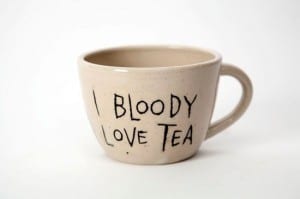Danny and I re-evaluated our prior performance idea where we explored segregation as an irrational concept, however we were just performing a segregational act. We wanted to show that, as a community, everyone can exist and be from their differences rather than be separate because of their social and emotional standing. We looked into Tino Sehgal’s ‘This Success / This Failure’ (Seghal, 2007) and the ephemerality and how this works alongside a focus on audience. Sehgal and Jens Hoffmann facilitated a group of twenty children with adult chaperones where the children were involved in ‘organised or anarchic play’ (Design, 2007) When a new member enters the space, a child has to leave and say whether they think their time in there was a success or a failure. This audience is essential for the performance to give any results and we believe this to be an engaging characteristic for a member of the audience and involving other civilians in the process of your creation will give organic and real outcomes.
We wanted a piece that brought the community of Lincoln together, rather than expose their differences. We thought about an act the most, if not all people “perform” on a day to day basis and we landed on a cup of tea. We followed from our influence of Rimini Protokall’s ‘100% City’ (2008-2014) as a stimulus or a guideline. We aim to meet 100 people within Lincoln and have a cup of tea with them within the confines of their own home, and a questionnaire in the form of a conversation. We are to record these conversations and take a picture of their hands around their own mug. We feel this picture will be able to explain a lot about the person, as hands can paint a metaphorical picture of what their life has entailed. Regardless of the superficial aspects of the hands, every pair will be from Lincoln or be living in Lincoln. Our aim is to then create an instillation in the Usher gallery in the room of fine china tea cups, where the pictures are displayed on a television via DVD with the audio of all the conversations layered over one another.
We chose our questions to explore the variation of people within Lincoln and the more extreme opposites the better: What order do you make your tea? How do you take your tea? What brand of tea do you buy? Invite three people alive/dead and famous/not famous, to have a cup of tea with you, who and why? What’s the best cup of tea you’ve ever had? If you could only have three cups of tea for the rest of your life, when and where would you have them, who would you have them with and why?
All these questions will be answered differently, in different ways and will all have very different outcomes and this is what we’re aiming for. Although all this information will show a diverse city that ranges in their ritualistic tea making, they all end up with the end product of a cup of tea. No matter how varied the answers will be, they all conclude with the same answer.
Works cited:
– Seghal, T. (2007) This Success/ This Failure. [performance art] London, England: Institute of Contemporary Arts.
– Rimini Protokoll. (2008-2014) 100% City. [performance art] Various places and dates.
– Design, E., Frieze Magazine | Archive | Archive | Tino Sehgal. Available at: http://www.frieze.com/issue/review/tino_sehgal/ [Accessed March 16, 2015].
– Anon, 2013. Tetley Estate Selection Tea – A Proper Posh Cuppa. Available at: http://www.themummyblogger.co.uk/tetley-estate-selection/ [Accessed on March 16, 2015].

Recent Comments